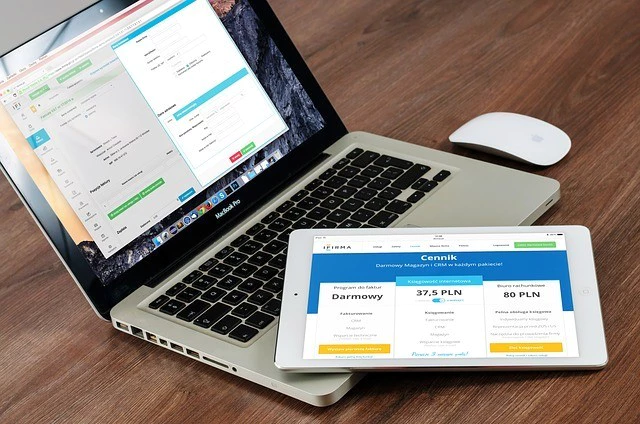
Thanks to the advancements in technology, today even a child can build a website by simply clicking a few buttons. But just because you can start a blog with a few mouse clicks doesn’t mean that it’s easy to make it a success.
A lot of aspiring bloggers wonder if it’s even a good idea to start a blog when you aren’t an expert on the topic.
In this post, I’m going to answer that question (the answer’s yes…) and give you 10 ways in which you can make your blog work and turn it into a success even without knowing a lot about your topic.
Many of the expert bloggers you see in your niche didn’t start off that way.
They learned along the way.
The truth is that it doesn’t matter whether you’re an expert or not. In fact, your lack of expertise could actually be a major factor in helping you make your blog a success.
How Your Inexperience Can Work Out In Your Favor
If you’re wondering how a lack of expertise can work out in your favor, it’s because experts and beginners are leagues apart!
And even though some experts may be great at talking to beginners, some complete novices may find it hard to connect with experts who have had years of experience and are seen as ‘gurus’ in their arena.
For those who are still new to their topic, you will likely still remember clearly what it’s like to be a beginner, which means you’ll be able to position yourself as a person who understands what starting out feels like.
You will be able to explain everything in a way that a beginner would easily understand. Readers will be drawn more easily to you if they believe that you know and understand what it’s like to be in their shoes.
And, as you learn new things, you’ll be able to share everything you learn with your audience.
Now that you know it’s possible to start a blog even if you’re not an expert on the particular topic, it’s time to explore the main things that you need to focus on before you get started.
3 Key Things to Do If You’re Not an Expert
For anyone who makes the decision to blog about a topic in which they are not an expert, or even if it’s one that you have just begun learning about, make sure that you do the following three, vital things:
1. Be ethical and transparent at all times
You need to be upfront about exactly who you are, as well as the level of experience you have.
That may involve telling your story (up until now) in your ‘About’ page or in a blog post. This is something that will endear you to your ideal audience and they will appreciate you for being honest.
There is nothing worse than coming across a blog by somebody who claims to be an expert (or implies it) but they aren’t.
People who read blogs these days are smart, and they can smell a phony from a mile away.
If you’re not an expert on your chosen topic, it will obviously come across in your writing, and even if it isn’t immediately evident, it can still have a serious impact on your blog later when readers (inevitably) find out the truth.
2. Be selective about the type of content you create
This is something you need to think carefully about.
Some types of posts are more authoritative than others, but without the years of experience, testing, experimenting, researching, surveying, etc. to back up such posts, you’re better off going with simple teaching posts that are focused on beginners.

You need to be very careful about this, particularly when writing about topics where the wrong kind of advice could have an effect that is detrimental to your audience’s lives, such as financial advice and legal advice, as well as mental, physical, and emotional health.
The last thing any aspiring blogger wants is to be responsible for ruining someone’s life.
But that isn’t the only potential consequence of offering misguided advice to readers in those critical areas.
In addition to damaging someone’s life, you also run the very real risk of being sued and destroying your own online reputation forever.
3. Never stop learning about your chosen topic
You need to keep actively learning if you’re going to be an expert in that topic one day.
With regard to this point, this is the reason why a lot of bloggers recommend that you choose a topic that you love and enjoy reading and learning about.
Even if you’re not necessarily interested in getting to that level where your readers consider you to be an ‘expert’, you will still be learning a lot of things along the way that you can then share with your audience.
When your readers see that you’re passionate and enthusiastic about your topic, it encourages them to be just as enthusiastic.
This can help to build momentum and anticipation, and boost their connection with you and your blog. So…
What Type of Content is Ideal for you to Create?
As a non-expert, if you’re not going to be creating how-to posts or tutorials, then what sort of posts should you create?
1. Craft posts around things you’ve actually seen or done
If you can’t be an expert on something, the next best thing you can do is ask yourself what you can be witness to.
In relation to your topic, what have you seen or been involved in that you can write about?
What experience have you had on a personal level that you can relate to your topic?
2. Write posts based around your mistakes and failures
This is something that a lot of novice bloggers have had great success with.
People relate to bloggers who are like them in that they make mistakes and learn from them:
- What did you try?
- What worked, and what didn’t?
- What would you do differently next time?
- …That sort of thing.
Maybe you tried to start a blog before and failed to make any money from it because you didn’t have a plan for monetizing your blog the right way, and now that you know, you’re sharing that knowledge with your readers (or something like that).
Posts of this type really resonate with readers because of their honesty and authenticity. But this only works effectively if your post is genuinely useful in showing readers what not to do.
3. Share your successes
Closely related to the point above, this is yet another type of post that you can write to help you connect with your readers even if you’re not an expert. We’ve all had successes in our chosen fields.
Whether it’s big or small, it’s worth sharing with your audience.
Even if it wasn’t that great of a success, you can still share how you’d build on it or tweak it next time if you had to do it all over again. Basing your post on your experience is a great way of creating teaching content.
4. Write about what other people in your niche are doing
Case studies are a great way to share what others are doing, and over time, it can help to establish you as someone who is knowledgeable about your subject.
For instance, you could write about how a blogger in your niche re-designed their blog and what you like about it and why. You can also include what you’d improve upon, and so on.
While in the past, most bloggers would just write posts about what other people were doing, these days, things have changed. It’s now normal to involve the person you’re doing a case study on.
5. Conduct interviews of experts for your blog
You don’t have to be an expert, but you can interview experts to come up with content for your blog.
And don’t worry about not being able to make this happen because experts LOVE to share their knowledge, and more likely than not, they will be happy to do an interview for your blog.
Just remember that (like you) they are very busy people and do your best to make it as easy as it can be for them to answer your questions.
Whether you choose to do video, audio, or text interviews, this kind of content is great for building your credibility, driving traffic, and helping your network more effectively in your industry.
 6.
6.
Encourage guest posting on your blog
Although this may not be something you’re willing to try when you’re first starting out, it’s a great idea to do it soon as your blog gets underway.
Opening up your blog for guest posters (or even hiring someone to ghost-write for your blog) is something you need to seriously consider.
You’ll be able to get content from professional writers or people who know a lot more about the topic (even if they may not be ‘experts’ in the field). Before you know it, you’ll have tons of content on advanced topics to help fill out your blog.
7. Create content focused on news and developments
Once in a while, you need to write posts on topics that cover development in your niche.
It could be some new tool or maybe even focused on some controversy in your industry. But, don’t just report stuff that’s happened. Instead of regurgitating what others have already written, take the time to interpret the story for your specific audience in a unique way.
For instance, you could ask yourself what that news or development means for you and your readers, and then answer that question in a post.
This also works for discussion posts, which we’ll talk about in a little while.
8. Learn how to curate content
Curated content is something that is overlooked by many bloggers.
This type of content involves linking to and quoting someone else’s content. Just keep in mind that this isn’t about copying someone else’s work and presenting it as if it’s your own.
For instance, if another blogger in your niche has crafted an epic article, you can pull out a short, relevant quote and use it on your blog with a link to the entire article. You can then add thoughts and opinions of your own to the article on your site.
Tell your readers what you liked, what you didn’t, what you think is missing from the article (eg. if there are 7 points, you could come up with an 8th one) and so on.
9. Embed OPC (other people’s content) into your blog posts
In addition to quoting from and linking to other people’s content, it’s also a good idea to include their content simply by embedding it in your own posts.
Tweets and YouTube videos are the most obvious examples, but this can be anything, really.
By doing this, you’re bringing other people’s voices (and their expertise) to your own blog. Curating and embedding content are two easy and effective ways to build relationships with various influencers in your niche.
10. Write discussion posts

These types of blog posts are great because they don’t require any expertise to achieve.
But of course, you need to have a substantial audience before you can make this type of post work. If you’re just starting out and you only have a few readers then this may not be such a good idea.
When writing a discussion post, ask a key question that will prompt a debate.
Encourage your readers to participate. You could even use some of the best answers and comments to write a related post in the future.
In Conclusion
These are 10 of the easiest and most effective ways to come up with engaging, compelling, and converting content on your blog even if you’re not an expert.
Pick one tactic and get started right now building an audience of connected readers who will learn and grow with you.
Just remember to ALWAYS be transparent, be careful when choosing the type of content you want to create, and never stop learning!
Feel free to post your comment below. An email address is required but it will not be shared with anyone, put on any list, or used for any kind of marketing, just to alert you if there are any replies. Thanks and happy hunting!
PlanetBizOp.com
->Steven
Updated: Originally published March 11th 2019